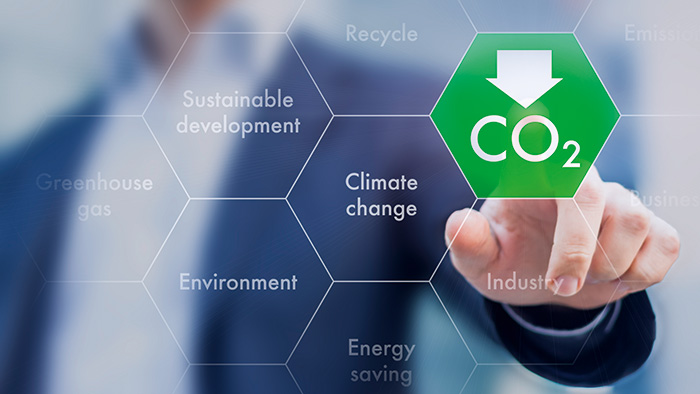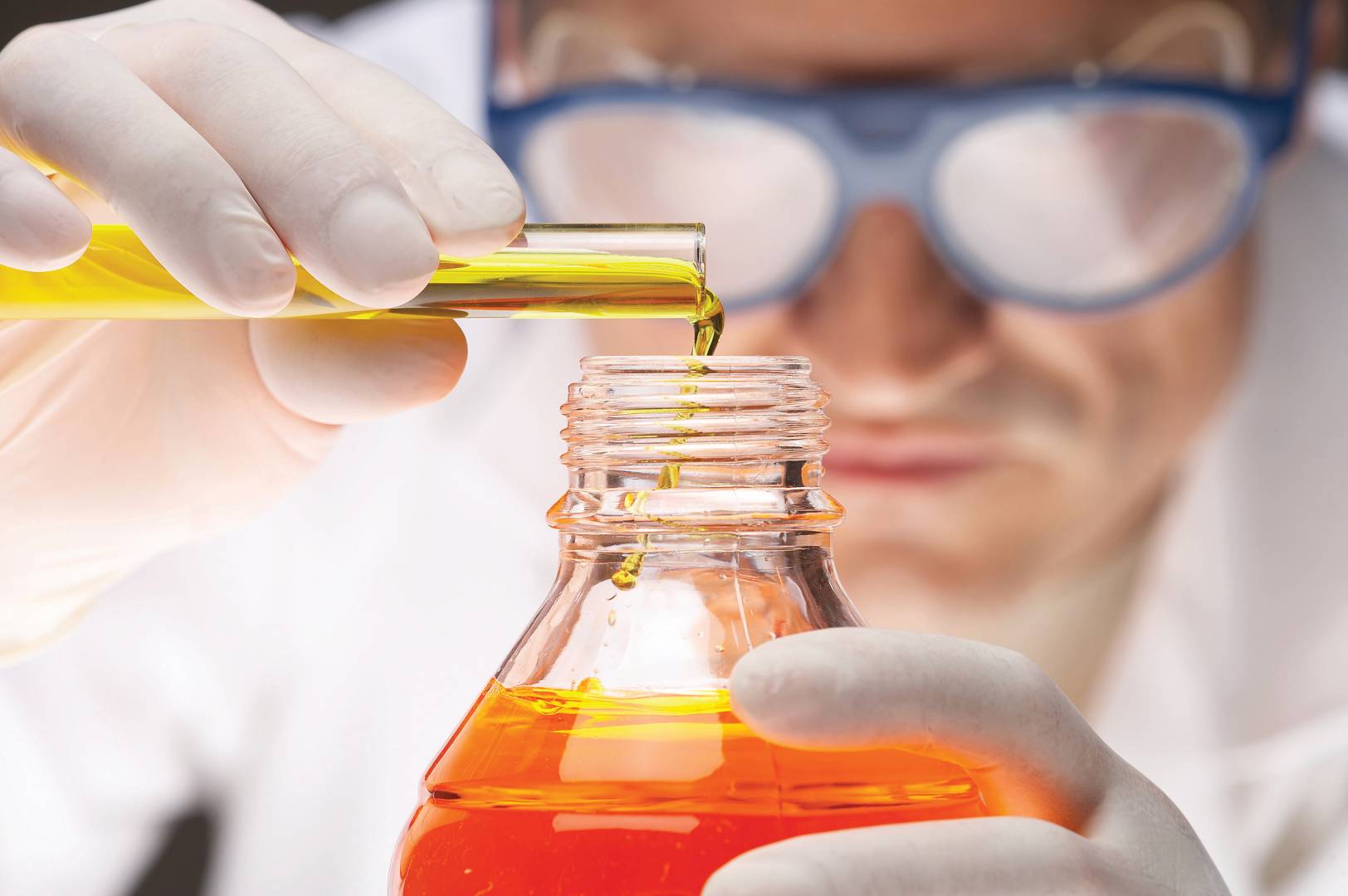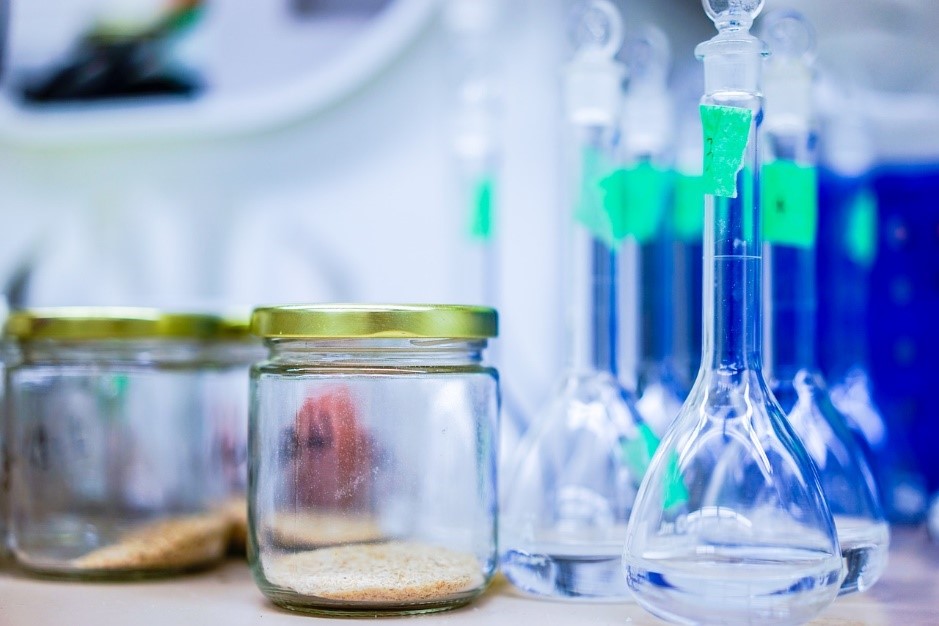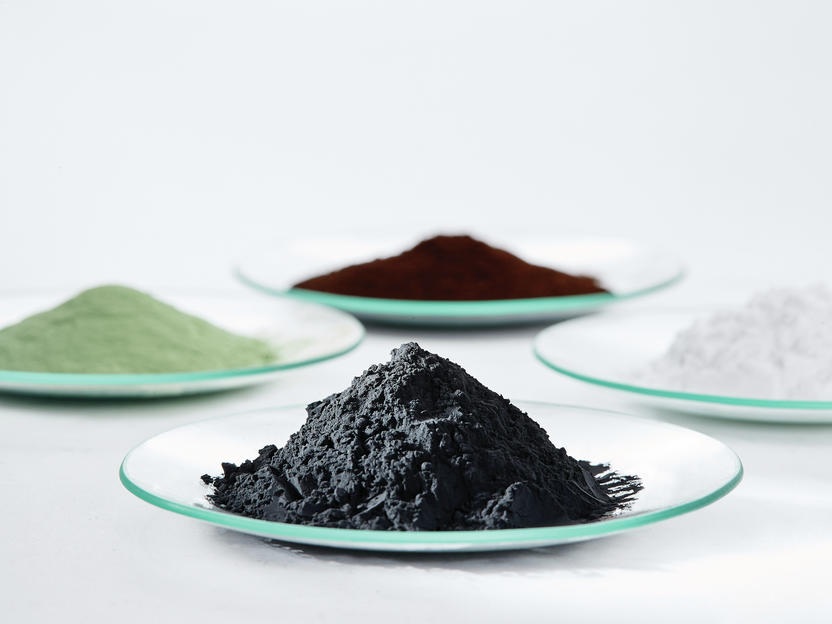Specialty Chemicals Prices and its Impact on Global Trade due to Covid-19

“Specialty chemicals have a critical role in ensuring public health and safety, as well as national security. What is the impact of COVID-19 on the specialty chemicals sector, what are the recovery strategies, and what lessons can the GCC specialized chemicals business learn?”
Apart from the human toll, the coronavirus pandemic is having an impact on the global economy, as countries implement lockdown measures and restrict population movement. Industrial activities have been suspended, international travel has been suspended, and only critical enterprises such as food and medications are permitted to operate. Almost all industrial sectors are suffering as a result of these measures, with manufacturers experiencing supply chain failures and labor shortages.
There is no exception in the chemical sector. In March, global chemical production fell by roughly 3%. Raw material and labor shortages, as well as government-mandated factory shutdowns, are the causes of this drop. Since February 2020, the specialized chemicals sector has experienced disruptions and production losses, as has the rest of the chemical industry.
Demand Is Unevenly Distributed Across Segments
Polymers and plastics, adhesives, paints and coatings, lubricants, cleaning materials, and many other sectors employ specialty chemicals in a variety of ways. Any disturbance in this industry has repercussions in a number of other industries that rely on specialty chemicals. Since the outbreak, there has been an uneven demand for specialty chemicals across different industries. While demand for specialty chemicals has decreased dramatically in the paints and coatings industry, it has increased or remained stable in the manufacturing of pharmaceuticals, cleaning agents, detergents, flavors and perfumes, and plastics.
The paints and coatings business has been severely harmed by a considerable drop in demand in its two primary end-use sectors, building, and automobile. Until the pandemic threat has passed and industry dynamics have returned to pre-outbreak levels, specialty chemical makers will need to make well-informed strategy changes and restructure their operations to handle this uneven demand scenario.
As the pandemic progressed, the specialty chemicals industry increased the production of chemicals and materials used in disinfectants, hand sanitizers, and personal protective equipment in order to fulfill urgent supply shortages caused by COVID-19.
COVID-19's impact on the specialized chemicals market
The specialty chemicals business, like others, has spent the previous few months focusing on safety, operational risks, supply chain interruption, and meeting financial responsibilities. Chemical manufacturing continued during the epidemic due to the necessity of output. Regardless of the scenario, people needed to eat, drink, and bathe, therefore packaging played and will continue to play an important part in the months ahead. As a result, we expect COVID-19 to have a little impact on the packaging business.
In the building industry, current market conditions are having long-term detrimental implications. Canceled and delayed projects, as well as decreased demand for non-essential projects such as entertainment and sports facilities, are among the disruptions. This has an impact on the need for construction chemicals including concrete admixtures, asphalt emulsions, waterproof coatings, and insulation foams, among other things.
Electronic specialty chemical manufacturers are also planning for a medium-level impact. Despite production and shipping issues, the electronics industry has been relatively unaffected. Short-term manufacturing disruptions are still predicted, as governments mandate the shutdown of non-essential output.
The already troubled car industry is under even more pressure. In 2020, experts predict an unprecedented and nearly instantaneous stopping of demand. Volkswagen, Audi, SEAT, Ducati, Porsche, and other brands in Europe's automobile industry are temporarily shut down. Even if manufacturing resumes, enterprises that rely on Chinese parts and materials would remain vulnerable and may be forced to close owing to a shortage of parts. The specialty chemicals used in the automobile industry, along with other suppliers, are projected to be severely impacted.
COVID-19 has an impact on the long-term chemical and material trends
Consumers are placing higher importance on sustainability and, as a result, are choosing items based on factors like circularity and carbon footprint. Furthermore, consumer concern about carbon emissions has prompted increased investment in renewable energy, energy efficiency, and transportation decarbonization. These developments have had a considerable impact on chemical end sectors, particularly in the automobile and construction industries. COVID-19 has exacerbated the situation by lowering the automobile and construction industries (as well as many others) and disrupting current supply lines.
The adoption of digital technologies by oil, gas, and chemical firms has been fueled primarily by cost savings and greater reliability. Many organizations in these areas saw excellent benefits from advanced market sensing, improved operational optimization, and expanded usage of "in silico" simulations. Companies' existing digital technologies provided an advantage with the abrupt entrance of COVID-19 and the accompanying shutdown of facilities and worksites, but they were often insufficient for the level of remote working and cybersecurity that was suddenly required.
Finally, the pandemic-related shutdown combined with the oil price crash in March 2020 exacerbated the oversupply scenario that several US chemical industries were already experiencing. The economic downturn lowered demand in both domestic and international markets. Furthermore, the drop in oil prices reduced the cost advantage that US petrochemical companies had due to their reliance on local ethane, potentially making their products less competitive in an already challenging market.
Following COVID-19, chemical company leaders should assess how long these changes will last, determining which are likely to accelerate and provide new opportunities, and which are likely to slow and have an influence on their operational environment. We present four scenarios that, while not prescriptive, highlight some significant indicators to watch in the chemicals business and potential opportunities for growth.
Major Effects of the Crisis
1. Supply disruptions and demand shocks have accelerated oversupply and imbalances: The chemical industry has rushed into an oversupply crisis that was already developing before Covid. The automotive, transportation, and consumer products industries have been affected the hardest, with chemical demand plummeting by up to 30%.
2. Shifts in chemical feedstock pricing have shifted the worldwide competitive order.
The price of crude oil fell to its lowest level since the Gulf War began in 1991 last month. The price of chemicals feedstocks and the worldwide competitive order shifted dramatically as a result of this decline. The United States, which is losing its cost edge due to shale gas, and the Middle East are the hardest hit. Lower input prices are compensated by lower output prices, which has conflicting implications on Asia, with China being the world's largest importer of crude oil.
3. Supply chain deglobalization
Chemical businesses have begun to (partially) shift or ramp up manufacturing of vital chemicals supplies and medical items closer to end customers in reaction to large supply chain disruptions (for example, pharmaceutical active ingredients, disinfectant gels, masks). Supply networks were already being impacted by trade tensions and structural sector developments.
4. A push for a contract in a market that can often be dormant
The chemicals M&A market has come to a near standstill, which is a significant change from recent years. However, with prices at peak levels and a lowered demand picture prior to the pandemic, this catastrophe may deliver a boost to a market that could otherwise have stalled.
Major Market Highlights:
- Capital Paints LLC, a UAE-based thermosetting powder coatings producer, has been acquired by Xalta, a leading global supplier of liquid and powder coatings.
- Dexmet Corporation, a provider of specialty materials for surfaces in aerospace, automotive, and industrial applications, was acquired by PPG.
- ArrMaz, a global pioneer in specialty surfactants for crop nutrition, mining, and infrastructure applications, was acquired by Arkema.
Conclusion: A blueprint for the future
Executives should keep an eye on wider trends impacting customer preferences and the broader market environment in order to focus on new growth prospects and extract more value from present resources and assets. The goal should not be to foresee the future, but rather to keep track of two essential aspects in this fast-changing situation: the pandemic's economic impact and changes in consumer tastes and behavior.
While metrics such as new infection rates and testing results can be used to track the pandemic's progress, one essential factor to keep an eye on will be the restrictions put in place to stem the spread, as well as the amount to which these policies stifle or postpone economic openings in certain locations. As neighborhoods reopened, traffic immediately rose, resulting in a spike in gasoline consumption. Furthermore, consumer spending has partially returned, providing some respite to the consumer sector, and new unemployment claims have decreased as people return to work. These are encouraging signs, but continued success will be contingent on the virus's containment.
Similarly, leaders should monitor not only the innate changes in consumer behavior that were already afoot prior to the outbreak but also more recent changes in response to the pandemic, such as growing demands for personal protective equipment (PPE) and health- and safety-related products. In addition, consumption patterns for contactless exchanges and innovative ways to obtain services will continue to grow. Companies who can be early adopters in this new terrain and embrace an "application-focused" approach would certainly gain in the long run.











